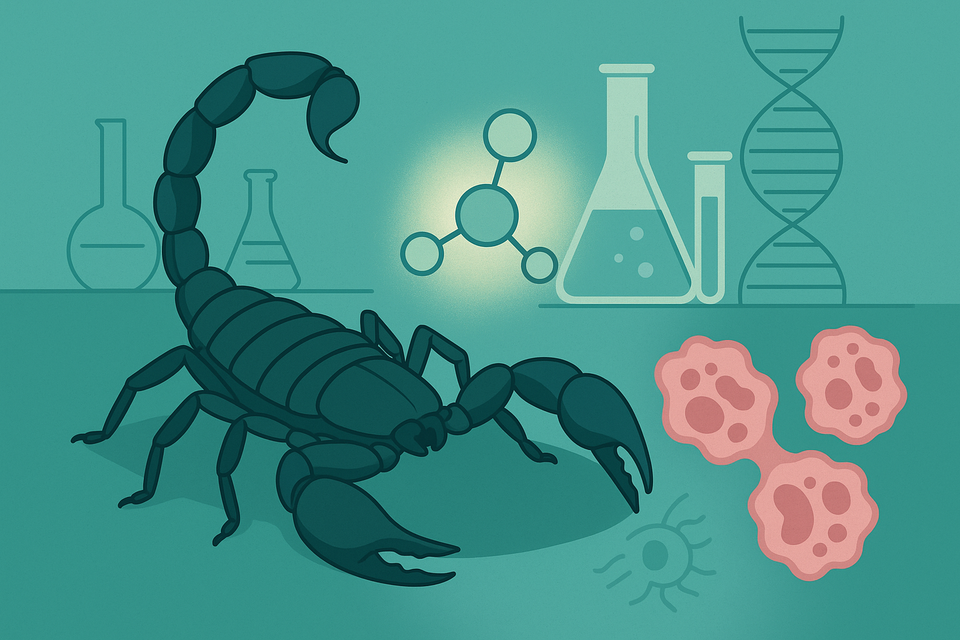Amazon Scorpion Venom Shows Promise Against Breast Cancer

Summary:
Brazilian scientists have identified a compound in Amazonian scorpion venom that kills breast cancer cells in lab tests. Known as BamazScplp1, the peptide matches chemotherapy-level efficacy with the potential for fewer side effects.
Key Takeaways:
- Breakthrough compound: BamazScplp1 induces necrotic cell death in breast cancer cells, rivaling paclitaxel.
- Lab-grown scalability: Scientists are reproducing the peptide via yeast-based expression systems.
- Global research momentum: Adds to growing evidence of scorpion venom’s anticancer properties across subtypes.
Why It Matters:
Breast cancer remains a leading cause of death among women, and chemotherapy side effects often limit treatment options. Natural compounds like BamazScplp1 could pave the way for gentler, more targeted therapies—especially for drug-resistant cancers.
Source Link:

A common Amazonian scorpion, Brotheas amazonicus, is the source of a newly discovered compound that may help fight breast cancer with fewer side effects.






